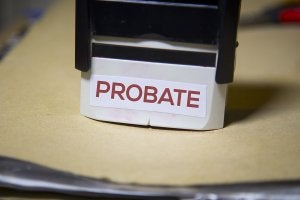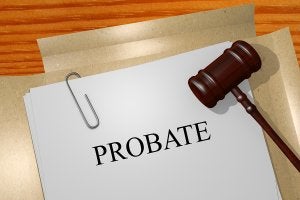-
Removing a Probate Executor: What You Need to Know
When dealing with probate law, the executor plays a crucial role in managing the estate according to the deceased’s wishes. If there is no Will, this role is typically referred to as an administrator. However, conflicts can arise—especially when an executor is a sibling and other heirs feel their interests are being neglected or the estate is being mismanaged.
Grounds for Removing an Executor
If tensions escalate, heirs may seek to remove the executor and appoint a more suitable replacement. Courts can also remove an executor without notice under specific circumstances outlined in Texas Estates Code, Section 361.051. However, heirs must formally request removal through probate litigation.
Common reasons for removal include:
- Embezzlement or serious financial misconduct
- Failure to provide an accounting as required by law
- Disregarding probate court orders
- Gross mismanagement of the probate estate assets
- Incapacitation preventing the executor from fulfilling duties
- “Other causes” that hinder proper estate administration (admittedly wide-open).
Challenges in Executor Removal
Before pursuing removal, heirs should consider potential pitfalls:
- The court must decide who will replace the executor. If heirs propose a replacement, the current executor may object.
- In many cases, courts appoint a neutral third-party probate attorney, whose fees are charged to the estate—often making this option less desirable than keeping the current executor.
What Happens at a Removal Hearing?
If the court finds significant estate mismanagement affecting heirs’ distributions, then the executor is likely to be removed. However, if the issue is a lack of communication, the court may simply order the executor to provide more information rather than remove them.
Final Considerations
Removing an executor is a legal step that should be pursued only if it truly benefits the estate. If the issue is merely a personal conflict, then removal may not be the best course of action. A good suggestion is to suggest a pre-motion mediation with the executor. Oftentimes, this is a cheaper means of settling disputes. Consulting a probate attorney experienced in estate litigation can help determine the best approach.
-
The Probate Process When a Will Exists: A Step-by-Step Guide
Probate plays a crucial role in settling the estate of a loved one or friend who has passed away. During this legal process, the probate court examines the validity of the will to ensure it meets all requirements for distributing the decedent’s assets. The court also ensures heirs and creditors receive proper notifications regarding their rights to estate property.
Why Contact a Probate Lawyer Immediately?
When a loved one passes, anyone interested in managing or receiving estate property should seek legal counsel as soon as possible. A probate attorney can provide essential guidance on preserving assets and navigating potential creditor claims, ensuring a smooth administration of the estate.
Filing for Probate and Will Approval
In most cases, the probate process begins with filing an application with the court clerk. Alongside this filing, the original will is submitted for review. The court posts a notice—typically at the courthouse—before the named executor appears in court. The executor must testify about the validity of the will and their qualifications to serve in this role.
If the judge grants approval, the court issues an order validating the will. The executor then swears an oath, committing to fulfill the terms outlined in the document.
Notifying Beneficiaries and Creditors
Once probate is approved, beneficiaries receive official notifications along with a copy of the will. The executor also ensures that secured creditors are informed. To maintain transparency, the executor must provide a written inventory of estate assets. This step helps beneficiaries understand what they may inherit, while creditors assess available property for settling outstanding debts.
Probate Administration: Why It Often Remains Open
Interestingly, many probate cases remain open indefinitely. This allows executors to address unexpected claims or changes in estate settlement, ensuring all legal matters are appropriately handled over time.
-
Treatment of Creditor Claims in Probate
There are often time limits involved in these procedures which may not be discussed below. Therefore, it is important to get a probate attorney to give you proper advice on handling creditor claims.
Probate creditor claims are generally handled by Section 355.102 of the Texas Estates Code. Claims and are typically paid in full, but by class, until the property of the estate is exhausted. Creditor claim classes are roughly provided in the following order: First, funeral expenses and expenses of the decedent’s last illness; Second, expenses of administration of the probate estate, including expenses incurred in preserving estate property; Third, secured claims by which an election has been made to pay as a matured secured claim; Fourth, delinquent child support; Fifth, unpaid child support; Sixth, taxes and tax penalties; Seventh, any other claim for money. If the estate runs out of money prior to the payment of all such claims, then those claims of lower priority simply must do without.
SECURED CLAIMS
As secured claim is a claim in which the creditor has a right, in some form or fashion, to recover, foreclose, or repossess the collateral. Typically, car loans, home mortgages, tax liens, etc., are examples of secured claims. When a secured creditor has a claim, then it must indicate whether it wishes to have such claim treated as a “matured, secured debt,” or, alternatively, as a “preferred secured debt.” If the election is made to be paid as a matured secured debt, then all estate property (not just the collateral) may be used to pay such claim, but there is no longer a right to foreclose or to repossess. On the other hand, if a preferred debt is elected (a preferred debt is the default option, where no election is made), then only the collateral itself may be used to satisfy the creditor’s claim. With a preferred claim, the creditor maintains its right to foreclose on the property.
There are options, such as family allowances, etc., which affect how claims may be satisfied from estate property.
-
The Basics of Probate
In a probate court, a decedent’s will is either authenticated or it is declared invalid. The probate process involves the distribution of the estate to the decedent’s beneficiaries and creditors. There is a “pecking order” as to who gets what from the estate. These actions are facilitated by the executor of the will and by a probate lawyer serving The Woodlands. You can learn more about the probate process by watching this brief video.
This legal professional explains that the probate process may sometimes take longer than a few months if the will is contested or there are multiple claims against the estate. Because of the complexities of estate matters, it’s advisable to seek the guidance of a probate lawyer. A probate lawyer’s advice can prove invaluable, especially in cases in which the will is contested.
-
Authenticating a Will Through Probate
When an executor probates a will in Houston, part of the probate process involves the authentication of the will. In many cases, the will is authenticated without a problem. Occasionally, a party in interest will challenge a will. The act of contesting a will means that one or more individuals have reason to believe that the will is invalid. Where such contested probate litigation is successful, the result may be a change in the distribution of the decedent’s estate.

Many people choose to create numerous wills throughout their lifetime to reflect their changing life circumstances. In most cases, the most recently drafted will is considered to be the Decedent’s true last will and testament. If the most recent will fails to comport with the requirements for a valid will, then the executor may have to revert to the second most recent will. A will may fail to be authenticated, or admitted to probate, because it was not created in a legally acceptable form; it was not witnessed properly; or the decedent did not have the mental capacity to understand the provisions of the will at the time of its creation.
-
What Happens to Stocks When the Owner Is Deceased?
It is likely that the stocks of a deceased owner will have to go through the probate process, but it’s best to consult a probate lawyer in Houston to confirm this. If stocks are jointly owned or titled “transfer on death,” then the designated survivor can simply redeem the stocks without the need for formal probate. Otherwise, the executor of the will must file the will with the court and then receive court-issued letters testamentary to validate his or her authority to transfer ownership of stock shares.
Oftentimes, the executor of the will then set up a separate estate account and re-register the stocks in the name of the estate itself, rather than the decedent. If the will specifies that the stocks are to go to one or more specific beneficiaries, the stocks can usually be transferred to those individuals unless the assets must otherwise be used to satisfy the liabilities of the estate. In some cases, the executor may need to obtain a court order to use the stocks in this manner. Otherwise, the stocks can simply be liquidated and the funds deposited into the estate account.

-
Probate Bonds 101
Many people involved with an estate go through the probate process without the need to secure a probate bond . If a family in The Woodlands does need a probate bond, then the probate lawyer can provide legal guidance in this area. A probate bond, also referred to as a fiduciary bond, and is simply a way to protect the estate from fraudulent or incompetent acts.
Understanding Probate Bonds

When a probate bond is required, the executor of the estate must post the bond. The executor is the person responsible for identifying the beneficiaries, satisfying any claims against the estate, and distributing the estate in accordance with the decedent’s will. Unfortunately, it is not unheard of for executors to engage in fraudulent acts for their own gain or simply to manager or administer the estate in an incompetent fashion. Probate bonds therefore provide an added measure of protection for the estate and the beneficiaries.
Recognizing When Probate Bonds Are Needed
Probate bonds are not always necessary, but executors may be required to post them when the estate is affected by unsecured debts. By posting a fiduciary bond, the executor is ensuring that these unsecured debts will be satisfied from the assets of the estate. If the will has not designated a specific executor, then a probate bond may be required in order to protect the beneficiaries. In some cases, the will may specify that the executor is required to post a bond. In other cases, the court may require that the executor post a bond. This may occur in cases when the estate involves substantial assets. Lastly, a probate bond may be required if one or more of the heirs named in the will refuse to provide consent to waive the bond requirement.
Identifying the Executor’s Fiduciary Duties
The fiduciary duty of the executor is to the beneficiaries. Subject to the probate court’s supervision, the executor is responsible for keeping the assets of the estate completely separate from his or her own assets. The executor must keep careful, accurate records of all matters pertaining to the assets of the estate. Those records must be made available to the beneficiaries upon request. If the executor carries out his or her fiduciary duties competently and does not engage in fraudulent acts, then the amount of the probate bond will be returned to him or her when the estate is settled.
-
Probate Spotlight: Disputing an Inheritance
The act of contesting a will in The Woodlands is often seen in an unfavorable light. Opinionated individuals may feel that contesting a will is disrespectful to the decedent, or is, perhaps, little more than an attempt to obtain more financial assets. In fact, estate law does allow legal grounds for challenging a will, with good reason. People who are elderly, in poor health, or otherwise vulnerable may be taken advantage of by non-family caregivers or other individuals. So when a will truly isn’t valid, then the rightful beneficiaries may not receive the inheritance that the decedent desired.
Time Limits

If you suspect that your loved one’s will is invalid, it’s always in your best interests to consult an estate lawyer right away. There are certain time limits to contesting a will. If you know that you are an heir, the deadline is two years from the date that the will was admitted to probate. If you didn’t know that you are an heir, such as if you’ve only recently discovered your birth parents, you have four years to file a challenge from the date at which the estate was closed. Minors must file a challenge within two years from the date of their majority.
Improper Execution
One of the grounds for challenging the validity of a will is that the document was improperly executed. For example, if it is a holographic will, it might not have been written entirely in the decedent’s handwriting. If it is an attested will, it might not have been signed by the necessary witnesses, or that the witnesses were disqualified by law from acting as witnesses.
Undue Influence
Wills are intended to carry out the wishes of the decedent after his or her death, but sometimes they can be unduly influenced by other parties. Your attorney may argue that the will is invalid because another person used his or her influence to undermine or overpower the decedent at the time that he or she signed the will.
Testamentary Incapacity
In order for a will to be valid, the testator must be of sound mind at the time of the signing. Your attorney may use medical records and other types of evidence to argue that the decedent was mentally incapable of understanding the effect of the will, the extent of the property, and other aspects of will creation.
-
What to Expect from the Probate Process
The probate process is perhaps among the least understood aspects of estate planning. It can be complex and it may be a prolonged matter that takes months to complete. However, the steps of the process can actually be clearly defined. When you hire a probate lawyer serving The Woodlands, he or she will explain the probate process to you and answer any questions you may still have.
File the Petition

The first step in the probate process is to file a petition in probate court and provide notice to the heirs. If the individual died with a will, then the petition will seek to admit the will to probate and appoint the executor. If the individual died intestate, the petition will seek to appoint an administrator for the estate. All of the heirs and beneficiaries will be provided with notice and a notice about the probate hearing will usually be published in the local newspaper. This allows beneficiaries to voice objections in court.
Give Notice and Take Inventory
Once the executor is appointed by the court, he or she must notify all creditors of the estate. Creditors must make a claim within a certain period of time. Then, the executor will take an inventory of the estate property. The inventory includes real property, stocks, business interests, and other assets. The estate may need to hire an independent appraiser to assess the value of non-cash assets.
Pay Claims
The next step in the probate process is to pay claims. The executor will determine which claims against the estate are legitimate. Those will be paid and other expenses, such as funeral expenses, will be paid. It may be permitted to sell estate assets if this is necessary to pay these obligations.
Distribute Property
Once all legitimate claims have been satisfied and the waiting period to file claims has expired, the executor will ask the court for the authority to transfer the remaining assets. If the individual died with a will, the assets will be transferred in accordance with those specifications. If the individual died intestate, the assets will be transferred in accordance with the state intestate succession laws.
-
What to Know About a Probate Bond
When an individual goes to a probate lawyer to have a will drafted, the document will almost certainly waive the requirement of a probate bond . But in some cases, it is a requirement to obtain a probate bond in The Woodlands unless your probate lawyer successfully argues against it. When a probate bond is issued, its purpose is to offer protection to the heirs and creditors of the decedent specifically from the negligent or intentionally wrongful acts of the executor or administrator.
For example, an executor might decide to retain all of the funds in an estate for him- or herself instead of distributing them among the creditors and other heirs. The existence of a probate bond allows the creditors and heirs to recover the amounts they are entitled to despite this act of malfeasance. Although a probate bond seems to be desirable, in most situations it actually creates more problems than it solves. This is because obtaining a substantial probate bond can be costly and not everyone will be qualified to do so. The funds from the estate cannot be used to pay for the probate bond simply because these funds are inaccessible until the bond is already obtained.

RECENT POSTS
categories
- Uncategorized
- Estate Planning
- Probate
- Family Law
- Drafting a Will
- Divorce Lawyer
- Texas Family Law
- Divorce
- Real Estate
- Probate Court
- Child Custody
- Andrew J. Bolton
- Esq.
- Adoption
- Law Office of Andrew J. Bolton
- Wills
- Executor
- Infographic
- Guardianship
- Trusts
- Contested Divorce
- Child Support
- Attorney
- Living Wills
- Contested Will
- Prenuptial
- Probate Bond
- Heir Apparent
- Legacy Contact
- Living Trusts
- legal guardian
- Legal Disputes
- property rules
- Common Law
- Stocks
- Estate Tax
